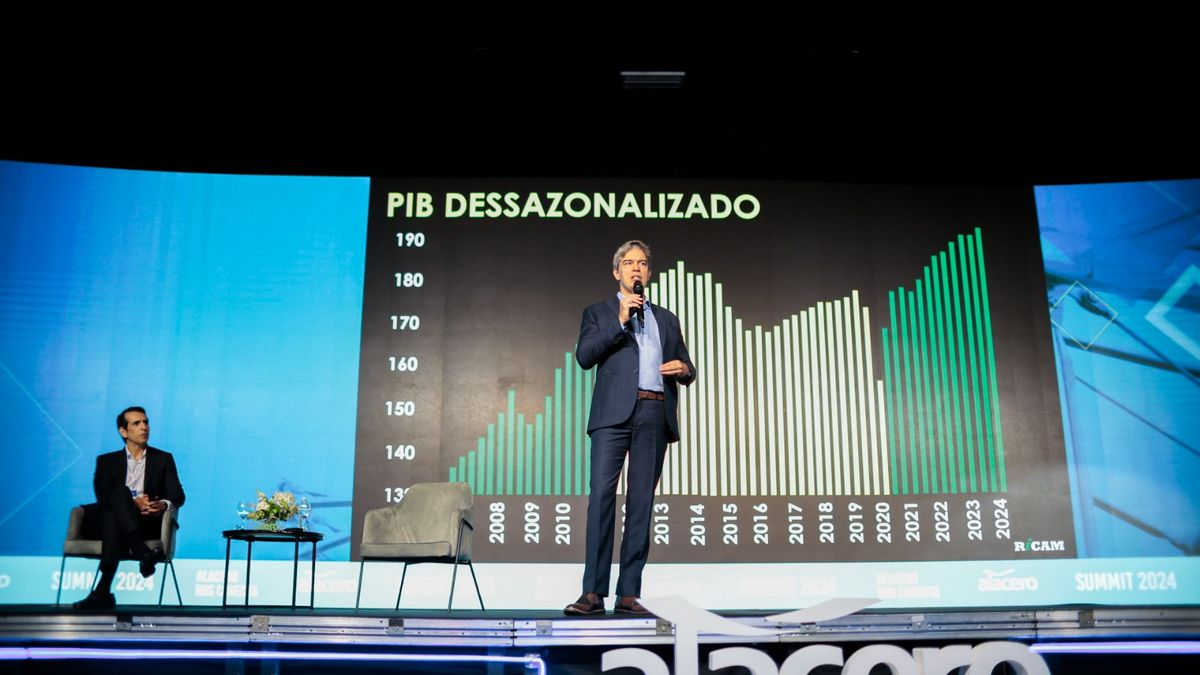Mexico and Brazil are the steel giants of the region. However, they are not immune to the challenge of competing against Chinese steel. How do you see it from Brazil? The vision of one of the most influential Brazilian economists.
All of Latin America is going through great challenges and economic transformations, in particular, the steel sector, which is at the base of the manufacturing industry, is being challenged by a avalanche of imports from China.
The content you want to access is exclusive to subscribers.
But with the Chinese economy growing less and, above all, the Chinese construction sector – the largest consumer of steel in the world – in contraction, China’s export surpluses have increased brutally.


The issue is that Beijing represents an absolutely disproportionate volume in the world steel marketwith a production 100 times larger than that of Brazil, which is one of the largest in the world.
On the other hand, some Latin American economies, such as Brazil, have grown steadily above expectations. And there, specifically, the Tax Reform creates the best opportunity for reindustrialization in the last 5 decades.
These were some of the topics that the Brazilian economist addressed Ricardo Amorim, considered by Forbes magazine as the most influential in the neighboring countryduring his presentation at the Congress of the Latin American Steel Association (ALACERO). What else did Amorim say?
- Martin Berardi (CEO of Ternium) drew attention to “nearshoring”. For Latin America, it is an opportunity to reindustrialization and particularly for Brazil. The region can once again occupy a very important role in the axis of world production, especially thanks to exchange with the United States. Mexico is the best positioned country, but The opportunity exists for the entire region. Brazil It is also very well positioned due to the tax reform that was approved last year. Although it will be fully implemented within 10 years, can encourage reindustrialization. It provides a potential for increasing competitiveness as the tax expenditure of the rest of the productive chain is taken as a credit. Therefore, The more value added, the more competitiveness.
- Something is happening in China that is characteristic of the highly leveraged economiesand the state stimuli find a weak response. Debt is growing, and businesses and consumers are beginning to fear for the future. When that happens, economic agents protect themselves. Mass consumption may not fall, but investment and the acquisition of real estate, which is a sector that demands steel. And China accounts for almost half of the global steel market, so the surplus has to go somewhere.
- In Argentina we see a radical change in public accounts, with greater spending cuts. This will reconfigure the Argentine economy next year, and will have an impact in Brazil. We live in a time of great political fluctuations and this prevents the business opportunities that should exist between both countries. We, as businessmen, should not be hostages to the political situation of bilateral relations.
- Today, the war in the Middle East and risks such as a Chinese invasion of Taiwan maintain that uncertainty. As long as the world continues with conflict hypotheses, there is an opportunity for Latin America, that is almost shielded from war. Latin America is the only region in the world with emerging markets with medium and long term potential, geopolitical risk close to zero and low asset prices. These countries are attracting capital in a way unprecedented in a long time. Today Latin America wins by a knockout the attraction of external capital. Brazil has a complex legal system and has big political problems. But faced with a war scenario, where do you prefer to direct an investment? To a safe country. For three quarters, foreign investors have been removing plants from China, and that flow has to go elsewhere.
- Nobody knows what the outcome of the US elections will be. Trump is one thing and Harris is another. And depending on how the result is reached, it may be the start of tensions with other countries. If a leadership vacuum were created, China can take advantage of it to resolve the Taiwan issue. How will the relationship between the US and China be? It is because of this uncertainty that people will take money out of China while they can, and it must necessarily go somewhere else. This is similar to what happened in Brazil between 2002 and 2010, also associated with favorable commodity prices. Afterwards, Brazil lived a period of 10 years where the stock of investments remained stable until the war in Ukraine, when it attracted capital again.
- I think that What is going to happen to the Chinese economy is key. A A more active economy will mean less surplus production. On the contrary, A more stable economy will imply that this surplus goes in search of international markets. And the US and Europe have imposed firmer and tougher measures than Latin America. Here the main factor is public opinion, and that is why the public must be informed about what is happening. I believe in competition, but in conditions of isonomy. That’s gone, and abuse is killing the market. The steel industry is the basis of transformation for any country. When we talk about the challenge of reindustrialization of the region, we necessarily talk about a strong steel industry.
Source: Ambito
I am Pierce Boyd, a driven and ambitious professional working in the news industry. I have been writing for 24 Hours Worlds for over five years, specializing in sports section coverage. During my tenure at the publication, I have built an impressive portfolio of articles that has earned me a reputation as an experienced journalist and content creator.




